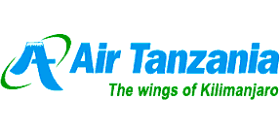 EU Ban Creates Turbulence for Tanzanian Travel Agents
EU Ban Creates Turbulence for Tanzanian Travel Agents
The European Union has banned all Tanzanian airlines from its airspace, citing safety concerns. This move has significant implications for African travel agents who previously relied on these carriers for European connections.
The EU Air Safety List, recently updated, now includes all air carriers certified in Tanzania. This decision, based on what the EU terms “serious deficiencies in national aviation oversight,” effectively grounds all Tanzanian airlines from flying to, from, or even over any EU member state. Apostolos Tzitzikostas, the EU Commissioner for Sustainable Transport, has urged Tanzania to address these issues swiftly. While the exact nature of these deficiencies remains unclear, the impact on the African travel market is substantial.
For travel agents across Africa, this ban presents immediate challenges. Air Tanzania, the national carrier, had ambitious plans for expansion, including new routes to London Gatwick and other European destinations. These plans are now on hold, leaving a gap in the market for direct flights between Tanzania and Europe. Agents who had incorporated these planned routes into their packages will need to revise itineraries and explore alternative options for their clients.
The ban’s ripple effect extends beyond direct flights. Codeshare agreements and interline partnerships involving Tanzanian carriers on EU routes are also affected. This disruption complicates travel arrangements for passengers who were booked on connecting flights through European hubs. Travel agents will need to be proactive in communicating these changes to their clients and offering alternative travel solutions.
While the ban presents a setback, it also opens up opportunities for resourceful travel agents. Alternative routing options via established hubs in Africa and the Middle East are readily available. Kenya Airways, Ethiopian Airlines, RwandAir, and South African Airways all offer connections to Europe from their respective hubs. Similarly, major Gulf carriers like Emirates, Qatar Airways, and Turkish Airlines provide seamless connections through their Middle Eastern hubs.
This shift in routing presents a chance for travel agents to showcase their expertise. By crafting creative itineraries that utilize these alternative hubs, agents can demonstrate their value to clients. This situation also underscores the importance of staying informed about industry developments and adapting quickly to changing circumstances. Strong relationships with airlines and other travel partners will be crucial in navigating this new landscape.
The Tanzania Civil Aviation Authority (TCAA) has expressed its disagreement with the EU’s decision and is actively working to resolve the identified safety concerns. While the timeline for lifting the ban remains uncertain, the TCAA’s commitment to meeting international safety standards offers a glimmer of hope for the future. Travel agents should monitor the situation closely and be prepared to reintegrate Tanzanian airlines into their offerings once the ban is lifted.
In the meantime, the focus for African travel agents should be on providing seamless travel experiences for their clients despite the disruption. By leveraging their industry knowledge and network of partners, agents can mitigate the impact of the ban and continue to deliver exceptional service. This situation highlights the resilience and adaptability of the African travel industry, which has consistently overcome challenges to emerge stronger and more connected.
Beyond the immediate impact, this ban underscores the importance of safety and oversight in the aviation sector. It serves as a reminder for all stakeholders, including airlines, regulators, and travel agents, to prioritize safety and maintain the highest standards of operation. By working together, the African travel industry can ensure the safety and confidence of travelers while continuing to promote the continent’s vibrant tourism potential.
This EU ban, while disruptive, presents both challenges and opportunities for African travel agents. By staying informed, adapting to the changing landscape, and focusing on client needs, agents can navigate this period of uncertainty and emerge as even stronger partners in the travel industry.
